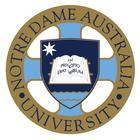Bachelor of Education (Secondary) / Bachelor of Science
Bachelor of Education (Secondary) / Bachelor of Science
At The University of Notre Dame Australia, we are committed to helping students become professionals who are in great demand in the workforce and this is especially true of our Education double degrees. The Bachelor of Education (Secondary)/Bachelor of Science provides students with the qualifications to work with students aged…
Categories
COURSE DESCRIPTION
At The University of Notre Dame Australia, we are committed to helping students become professionals who are in great demand in the workforce and this is especially true of our Education double degrees. The Bachelor of Education (Secondary)/Bachelor of Science provides students with the qualifications to work with students aged from 12 to 17 years in Catholic, Independent and Government schools. As part of your studies, you will complete 32 weeks of school-based practical experience and also choose a teaching Major in addition to the Science major from your Bachelor of Science.
Why study this degree?
Our Bachelor of Education (Secondary)/Bachelor of Science is a well-rounded undergraduate program that combines theory, the latest teaching technology, and plenty of hands-on classroom experience. Working from a rigorous and practical curriculum, you will acquire the academic skills needed to teach secondary school students. In addition, you will be required to choose one major teaching area such as English, Humanities and Social Sciences, Mathematics, Science or Religious Education and complete eight courses in this chosen major.
As part of the Bachelor of Science component of the double degree you will study a set of core interdisciplinary Science courses including experimental design, math’s, biology and chemistry. These courses provide the basis for strong skills in scientific investigation, including data collection and analysis, critical thinking, problem solving, teamwork, and effective communication. These skills are highly sort after by employers and applicable to many workplaces both within and outside of the field of Science.
Building on this core Science courses, you will deepen your study of Science by selecting a Science Stream that matches your interests: Biology & Environment, Environment & Heritage, Human & Medical Science, or Multidisciplinary Science. Each Stream ensures in-depth knowledge and skill development through practical hands-on experience in the classroom, the laboratory, and in the field. This will prepare you well to inspire your young students and teach Science within an educational setting.
An integral part of your degree is the 32 weeks of supervised teaching (practicum) experience. This is divided into two weeks of classroom immersion and teacher assistance in your first year; one term with a special focus on your Learning Area Major in your second year; one term with a special focus on your second Learning Area in your fourth year; and an internship in your final year which focuses on both your Learning Area Majors, as well as Religious Education if you have chosen to complete your accreditation to teach Religious Education.
REQUIREMENTS
Applicants must meet High school qualifications (or equivalent) to apply for undergraduate program. Academic minimum entry requirements for international applicants vary from country to country.
A minimum overall score of 7.5 in IELTS Academic, with no score lower than 8.0 in speaking and listening, and no score lower than 7.0 in reading and writing.
EDUCATIONAL INSTITUTION
The University of Notre Dame Australia is a leading institution in Australia. It offers a range of undergraduate and postgraduate programs in arts & sciences, business, philosophy & theology, education, law, nursing & midwifery, physiotherapy, medicine and health sciences. The University has campuses in Sydney, Perth and Broome. It also has seven additional Clinical Schools in New South Wales and Victoria, which are part of its School of Medicine. The institution has one of the highest graduate employment rates in the country. During their time studying, students are offered individual career support, covering everything from CV writing to brushing up on their interview skills.




